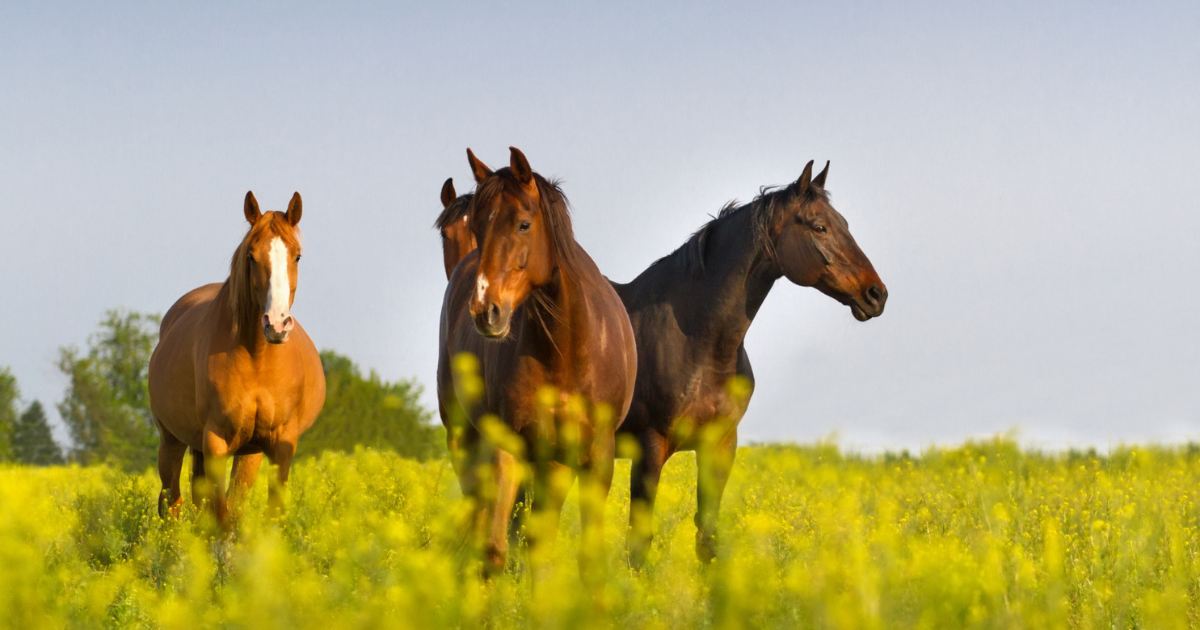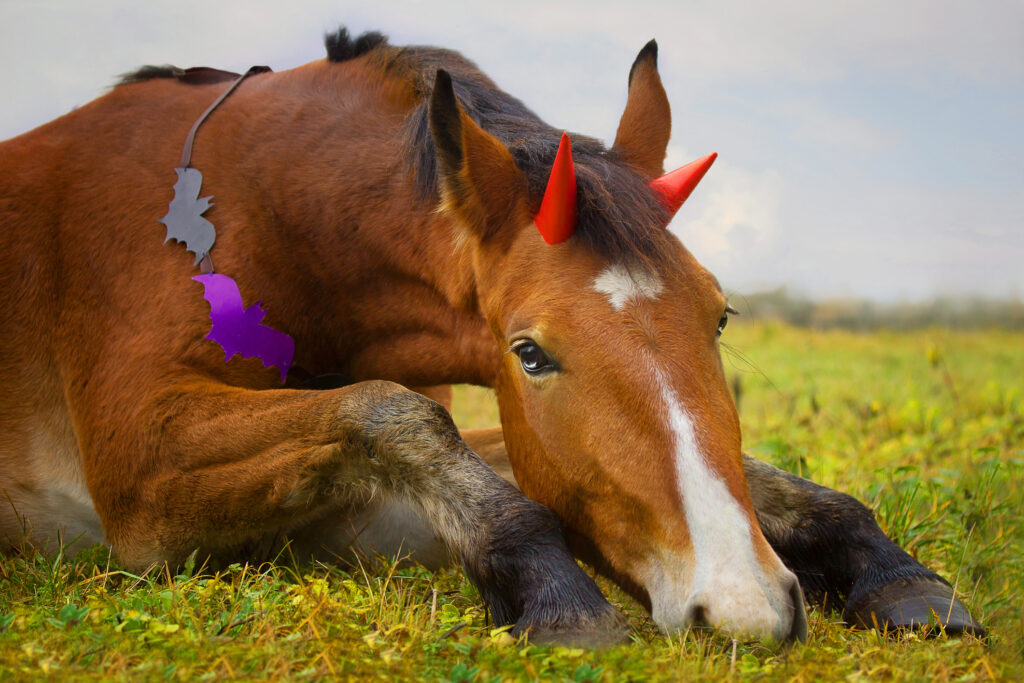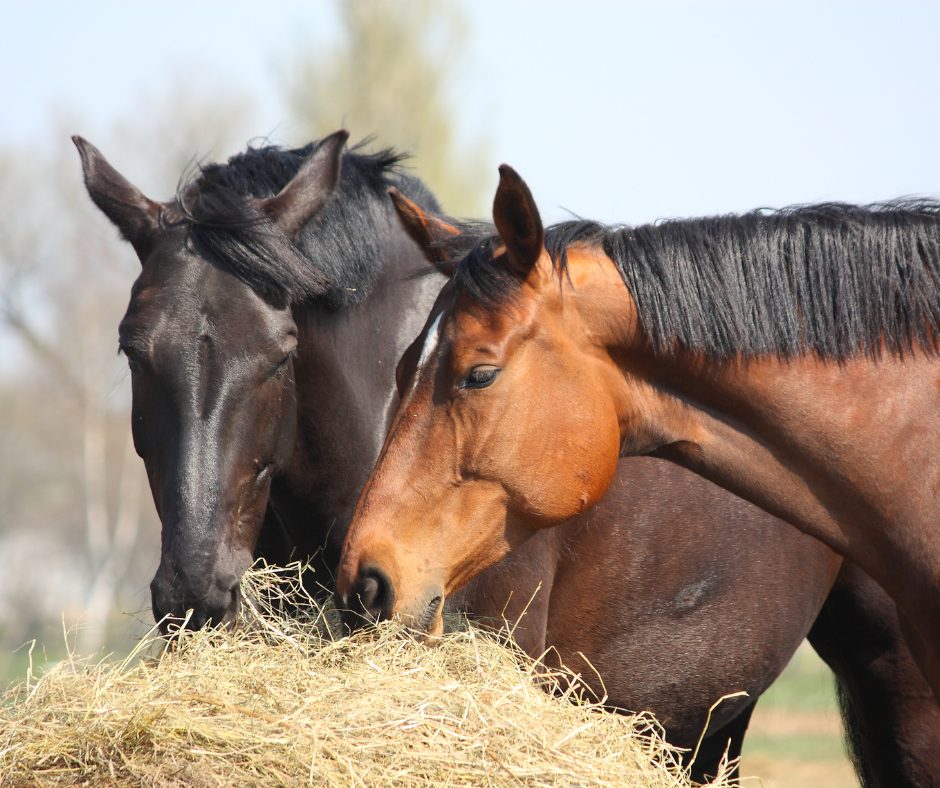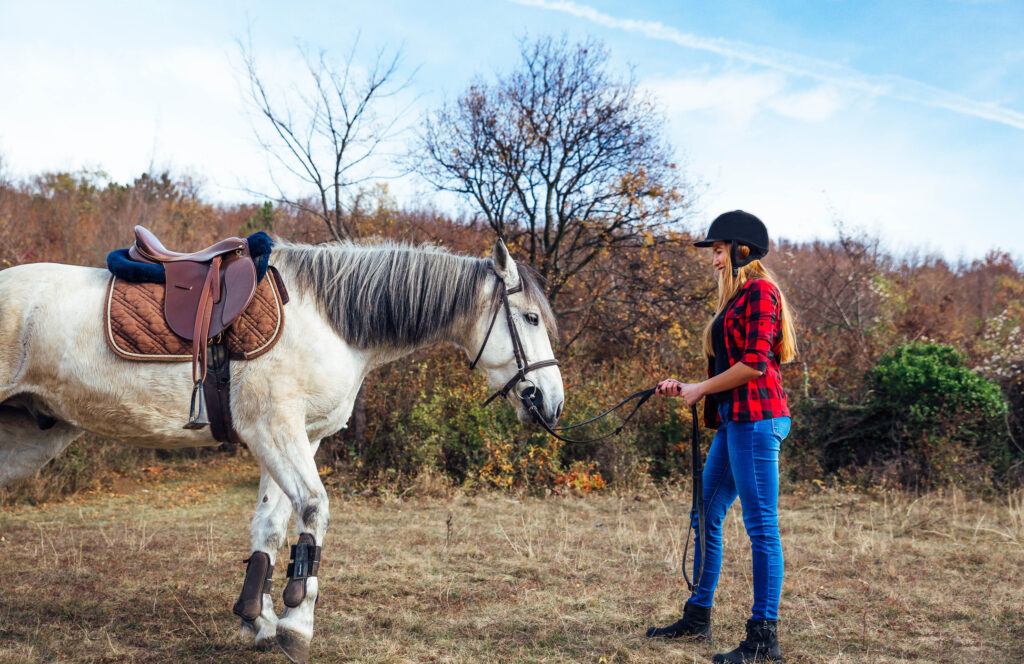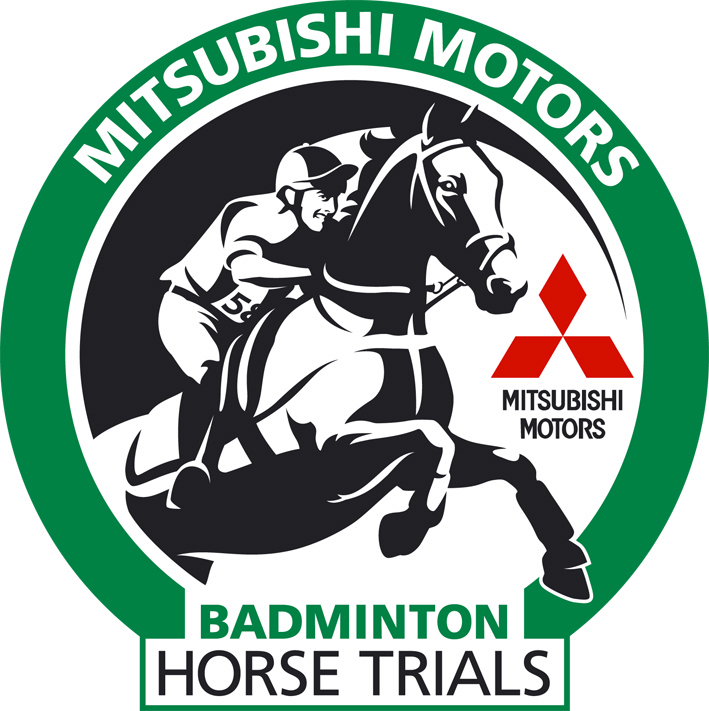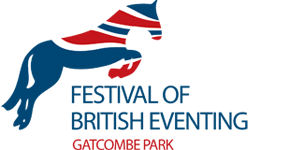What food can you incorporate in your horses diet?
- Pasture Grass: Grass is natural and great for horses’ digestive systems. Good pasture grass contains nutrients that a horse needs and silica, which is important for their dental hygiene.
- Hay: Hay maintains your horse’s digestive system and keeps it full during the day, particularly in the cooler months when pasture isn’t available. It’s recommended to have hay tested for its quality, any damages and lack of nutrients.If they lack vitamins and necessary nutrients, supplements can be provided. To ensure that the hay is kept safe and free of damage, we highly recommend storing them in reliable hay barns or shelters. Learn more about hay storage in our guide here.
- Fruit and Vegetables: Fruits and vegetables can add moisture to the horse’s feed and can be given as a treat, but moderation in feeding horses with fruit should be considered due to high sugar contents.
Our tip for horses’ safety is to ensure that the fruits are pitted before being given to horses for consumption. This will help avoid horses from choking and causing them any discomfort.
- Grains: Grains that are harvested and processed organically are a natural food that can be fed in small amounts to horses. Some grains that are safe for horses include oats, maize, barley, and wheat.
- Concentrate Mixes: Made up of a mix of cereals, grains, supplements, and minerals, concentrates can be fed to horses to supplement their diet. They can be given to promote weight gain, provide energy, and support overall health.
. - Salts: Salt blocks can be given to horses for extra minerals and nutrients. They are a good source of sodium which is great for fluid balance as it encourages them to keep hydrated. Remember that hay grains and horse supplements are also a great source of sodium, so it’s essential that salt blocks are given in moderation.
What not to feed your horses?
- Caffeine: Caffeine can be harmful to horses. It can lead to restlessness, excessive sweating, and increased respiratory and heart rates.
- Chocolate: The theobromine in chocolate is toxic to horses and can cause severe internal bleeding, seizures and colic and metabolic derangement.
- Avocado: The entirety of an Avocado is poisonous to horses. It can cause colic, respiratory issues, edema and other serious illnesses. To keep them safe, ensure that your horses do not have access to these fruits and aren’t grazing around the plants.
. - Cauliflower, Cabbage, and Broccoli: Vegetables in the brassica family, such as cauliflowers, broccoli, brussels sprouts etc., can lead to detrimental gas and colic problems for horses; therefore those should be avoided entirely.
- Dairy Products: While milk isn’t poisonous to horses, they are lactose intolerant like most animals. To avoid digestive issues, it is best to keep horses away of dairy products, including milk, cheese, dairy ice cream etc.
- Potatoes: Potatoes contain a chemical known as atropine, which can impact a horse’s nervous system. It can also lead to toxicosis, which can cause convulsions and even death.
- Persimmons: The fibres and seeds of persimmon can get lodged into a horse’s digestive tract, leading to colic. Therefore, these fruits must be avoided completely.
. - Bread: Bread might sound like a harmless treat for horses, but they provide no nutritional value whatsoever. Therefore, it is advised to keep bread away from a horse.
Vegetables that Horses can Eat
- Carrots: Carrots are the perfect treat to give to your horses. They are high in minerals and full of essential nutrients such as Vitamin A. When preparing carrots, cut them into long, thin or small pieces, so they are easy to eat and not a choking risk.
- Turnips: Being one of the healthiest root vegetables with low calories and sugar, turnips are a great vegetable to feed to horses. Of course, moderation in portion sizes is key, with one or two pieces being recommended daily. Moreover, giving your animal dry roughage (such as hay and straws) is essential as it will enable the horse to digest the turnips properly.
- Parsnips: Can horses eat Parsnips? Absolutely! Parsnips are low in sugar, making them great for horses to consume. They are a good source of fibre and are great for digestion and reducing constipation. Like other vegetables, moderation is key as too much of them can be detrimental.
- Celery: Celery is a good treat for your horse due to its high-water content, no harmful chemicals, no seeds, no excess carbohydrates or sugars, and is rich in fibre.
Fruits that Horses can Eat
- Bananas: Bananas are a good source of potassium and are safe for horses to eat. They are especially great to give to horses as a treat between races and training.
- Pineapple: Pineapples are a good source of vitamin C. Giving horses small pieces of pineapple as a treat is safe and something they will enjoy very much!
You can also offer horses raisins, grapes, strawberries, pumpkins, and melons. Always be mindful that these treats should be served in modest proportions and cut into smaller pieces before feeding to minimise the risks of your horse choking.
Choosing the right food for your horses is one of the essential parts of keeping your horses safe, healthy and happy. In addition to food, finding a reliable and specialised shelter or hay barn to store their food, such as hay and wheat, safely is equally fundamental to optimise your horse’s health.
At Jon William Stables, we provide a comprehensive range of specialist timber buildings to fit your needs, from horse stables, garages, hay barns and field shelters. If you wish to find out more, please download our brochure here, or call us at 01380 050 965 to speak to one of our friendly team members today!
